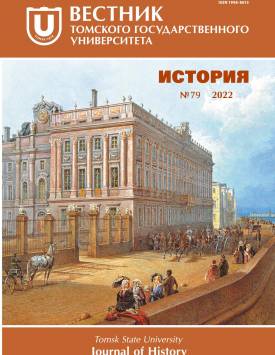The Slavic world of ancient Russia in modern artistic literature
The purpose of our study is to identify the place and role of turning to the history and mythology of Ancient Russia in modern Russian society as a way of elaborating of the USSR collapse historical trauma. The works of modern Russian writers such as Maria Semenova, Elizaveta Dvoretskaya, Alexander Mazin, Andrey Posnyakov, Andrey Rubanov and others were chosen as the source base for the article. The selection of authors is based on their popularity among readers, as evidenced by both the numerous reprints of their books and awards they have received. This indicates common interest in the topic in general and in these works in particular. The article updates the topic, as well as provides a review of fiction describing the Slavic world of Ancient Russia, and emphasizes the need for its comprehensive study. Authors of the article noted that the mass consciousness creates image of the past through fiction to a greater extent than through scientific literature, while historical science, in contrast to philology, underestimates historical fiction. However, recently the situation is beginning to change for the better. The study revealed a clear trend, on the one hand, towards the mythologization of the historical past of Ancient Russia, and on the other hand, towards its unconditional glorification. Almost all the authors we study include various kinds of mythological patterns in their narrative, trying to connect the world of real history and the world of Slavic paganism, trying to find the origins of Russian identity in it. This conclusion is referred not only to works in the genre of Slavic fantasy and to the so-called literature about the “time-travelers”, but is also characteristic of historical novels that are more classical in form, especially since the authors of both genres are often the same. The answer to the current problems of the post-Soviet society was an attempt to show in a favorable light the history of Ancient Russia, the heroism and courage of the ancient Russians and the wisdom of their rulers, which can also be explained by the demand of society for this kind of interpretation of historical events. As a result, we conclude that there is an active search for national identity in post-Soviet society, and references to the history and mythology of Ancient Russia play a huge role in it. Historical fiction is especially significant in these processes. The authors declare no conflicts of interests.
Keywords
historical memory, common consciousness, the Slavic World, historical fictionAuthors
| Name | Organization | |
| Kon’kov Dmitriy S. | Tomsk State University | dkonkov@mail.ru |
| Merkulov Sergey A. | Tomsk State University | sermeral@yandex.ru |
| Yushnikov Aleksandr V. | Tomsk State University | musakliol980@gmail.com |
References

The Slavic world of ancient Russia in modern artistic literature | Tomsk State University Journal of History. 2022. № 79. DOI: 10.17223/19988613/79/7
